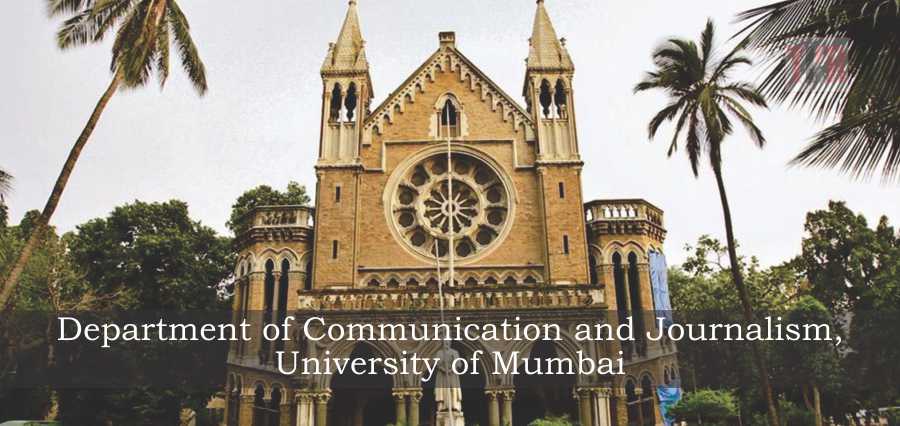The Department of Communication and Journalism, University of Mumbai was started with an aim to inculcate the students with a sense of responsibility and ownership for every aspect and every act of their lives. Emphasizing on studies, the University of Mumbai aspires to enhance the skill set of every student in understanding content, its production and uses, its commercial uses, and the ethical pressure that comes with it.
A media person is first and foremost a Schumpeterian entrepreneur. As People, communication and media universe has an immense potential to lead the world in mindful and meaningful communication. In the present communication universe, the individual is at the center and is free and willing to take responsibility. Working with an aim to introduce Indian Communication Design to the World, University of Mumbai started the Department of Communication and Journalism in 2003.
Earlier to its inception, Communication was not in the academic domain, and Journalism was taught in diploma or certificate courses in colleges affiliated to the University of Mumbai. Through the years, the Department has expanded to include a Masters each in Communication and Journalism, Public Relations, Electronic Media, Television Studies, and Film Studies. The Department now also has a PhD programme adding to the academic worth of the domain.
Distinctive Facilities
There are several projects that students and teachers undertake during a single year. The Department of Communication and Journalism has a compulsory research component where every student produces a research dissertation as a part of the programme. They thus produce about 100 research dissertations covering a vast array of hypothesis in the fields of communication, media and journalism. They make films every year and participate in competitions and of course win prizes. Their students have won international essay competitions.
Communication, media and journalism deals with content. While operationally, mass media requires technology and commerce without doubt, the approach in the University of Mumbai is more on studies since the skill-set requirement is getting more and more massified as technology gets more and more accessible and cheap. What is required is an understanding, insight into content, its production and uses, the commercial uses, and the ethical pressures that comes with it. The pedagogy therefore focuses on the intelligence of the learner through immersion into ideas, concepts, and concerns. At the Department of Communications and Journalism, they understand and appreciate that technology is at the disposal of our will, intelligence and imagination, and we must learn to make it work for us.
Future Opportunities for Students
The opportunities for students range from being job seekers in a highly competitive market to becoming entrepreneurs in their own right and students in the department have been adept at all of these. The future lies in entrepreneurship and artisanal capitalism where mass media is concerned.
A Creative Mentor
Sanjay Ranade is the Head of the Department of Communication and Journalism. He was a journalist for ten years prior to entering into academics. He worked with The Times of India, Business India, Lokmat, In Mumbai, Reuters, Bloomberg, Abacus PR and was also the press adviser to the Union Minister for Power. He has received the National Radio Playwright Award, and the International e-Novel Writing Prize. Moreover, he has written several books, chapters in significant research, and academic books and research papers.
Words of Trust
“DCJ has been one of the most important milestones in my life, the course curriculum imbibed some of the most interesting assignments which helped me get my act together in the field as I ventured out into the job sphere!”
_Sthitipragya Dash (Journalist and International Affairs Scholar)
“Studying at the Department of Communication and Journalism, the first lesson I had learnt was to be a student; ‘understanding and learning’ the media first then and be a professional. The constant ‘push’ towards the growth of knowledge by the department has led me to be a life-long learner.”
_Yatindra Ingle (Journalist and Media Educator)









